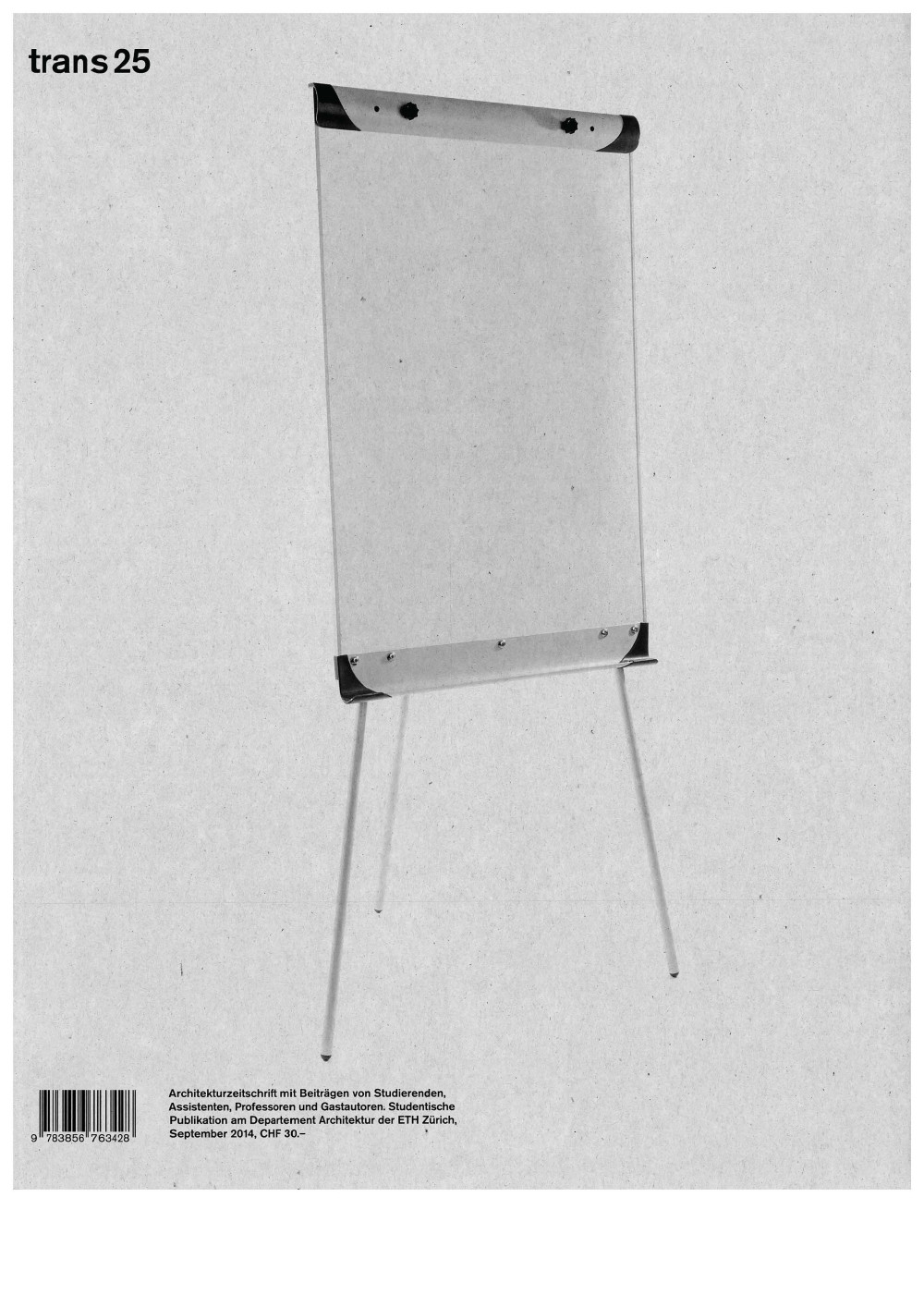To speculate is to calculate and to wager, to explore and to dare. While the definition as a profit-oriented business activity has become commonplace, the other is more difficult to grasp and means the imprecise expectations founded on assumptions, which is a matter of risk and courage as much as fantasy and idealism. Taking the third level of meaning - the striving of reason for insight outside the world of the senses - one is faced with a mental construct that can neither be clearly delineated nor read without contradictions. Creating a field of tension from the multiple layers within the word, to induce a critical confrontation, might work well in the conceptual framework of an abstract and undetermined world of thought; however, in the search for terms that precisely describe the respective facets, one easily slides into common prejudices. If one attempts to strictly categorise every position, one fails, as most cannot be clearly assigned. Each moves between good and evil, the visionary and backward-oriented, the pragmatic and idealistic. While some contributions attempt a documentary view of our world, others dare a subtle glance on the beauty of brutality; while some predict with scientific precision, others use the circumstances of reality to describe the truth of the fantastic. The field of tension becomes a thought-collage of promising traces and fragments.
The attempts of interlinking the financial and architectural world are numerous and cannot be dissolved - their difference lies in their point of view on the circumstances. Hence, the partition of this issue into three sections cannot serve as a clear demarcation; rather, each contribution is put into a complex web of meaning, and the sections use the elements of a simple game, with its rules and connotations as a guiding narrative. Each option, rock, paper or scissors, remains equally valid throughout the game, and only their juxtaposition reveals the weaknesses, limits and differences of each move.
In this framework, the scissors are emblematic of the instrument and represent an active stance towards progress, whereas the paper describes possible points of departure and draws dazzling pictures of the future. The rock has the attributes of the archaic and groundedness and opposes the strategic thinking and sophisticated processes of the scissors with its direct reference to the original state of things. And while the paper, in the realm of thought and atmospheric fiction, attempts to gain differentiated insight with diverse ways of reading, the rock justifies the lack of ideology as well as the firmness of a policy and the absoluteness of the concrete.
These three associative fields therefore do not attempt to define universal truths, but rather endow each contribution with additional levels of meaning to elicit a statement in relation to the whole.
They are an attempt to depict the complexity of our discussion. Though we had decided at the beginning of our endeavour to confidently look forward and draw a vision, «trans 25> cannot promise this. And had we eagerly theorised that the economisation of architecture has made utopia obsolete and that monetary greed sets the contemporary pace, we can definitely confirm this - or exactly not, because what is common to us all is ignorance: ignorance, which brings each of us onto these aberrations of thinking, questioning
and discussing, and fools us at the moment when we believe to have arrived a little closer to truth. It is exactly this ignorance that feeds our optimism, strengthens our scepticism towards the new as well as the old and awakens our desire for reflection.
The proceeds of this edition of <trans> is not a result of absolute validity, but rather the insight that genuine interest, optimism and perseverance can bring us further, and that architecture definitely requires critical reflection - because even the importance that we attach to our work, is ultimately self-made.
Contributors
Ekaterina Ageeva, Ljubica Arsic, Ting Chen, Isabel Concheiro, Margaret Crawford, Hermann Czech, Manuel Däster, Lorenza Donati, Janina Flückiger, Daniel Fuchs, Paolo Giannachi, Gian Francesco Giudice, Daniel Häni, Martin Härtung, Lindsay Blair Howe, Balz Halter, Michael Hirschbichler, Matilde Igual, Bijoy Jain, Florian Kaiser, Natalie Keppler, Mascha Kremer, Hansjürg Leibundgut, Joshua Mardell, Lucian Sandu-Milea, Christi Mudrak, Garrett Ricciardi, Julian Rose, Christian Salewski, Alina Schmuch, Laurent Stalder, Hans Widmer, Mejrema Zatric, Tobias Wootton & Seminar Architektur und Fotografie ETH Zürich
Editorial Team
Samuel Aebersold, Janina Flückiger, Lex Schaul, Matthew Tovstiga
Table of content
Parallels in the zeptospace
Year 2050
Venice 2014 : specualtions on a hiatus in architecture
Subtil
Spekulieren auf FNA, CRO und PNI
Helvetia, quo vadis?
Mittel oder Zweck
Jenseits der Küste Utopias
Snozzis Hoffnung
Pamphlete zur Spekulation
Zukunftsbilder
Carol 53 : between adaptability and transgression
Zwischen Nutzen und Räumen
Herzlichen Glückwunsch, liebe Klara!
Hybridity as an urban speculation
Einige Spekulationen aus der Geschichte heraus zur Architektur der Gegenwart
Formless as found
The hidden bubble
Siedlung in rot-beige (begrünt)
Forming the Socialist frontier
Common or garden
Experimental Utopias
Zukunft gestalten
Arcadia
Ist die Zukunft tatsächlich ein Problem?
Medianeras : Spuren der Spekulation
Agreeing to disagree
